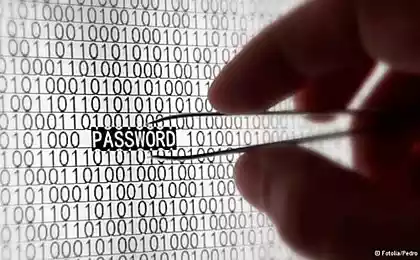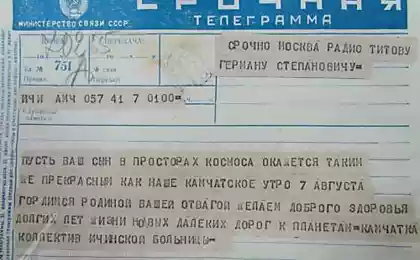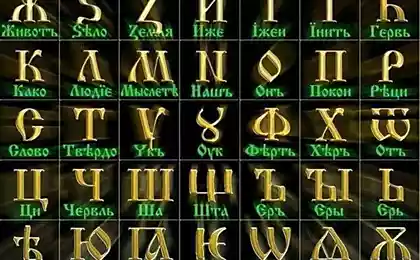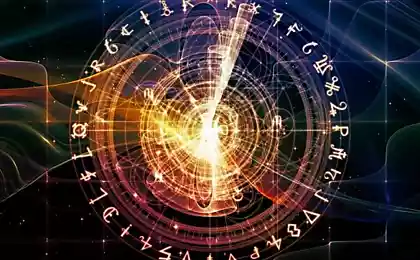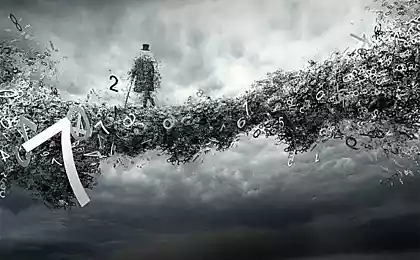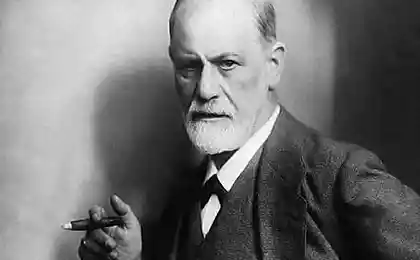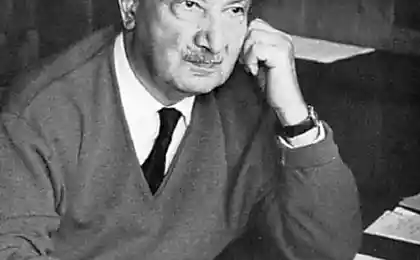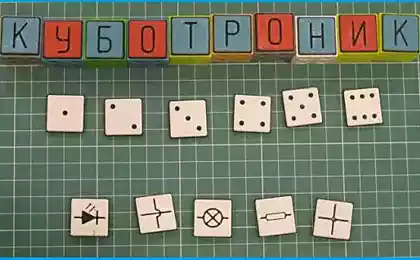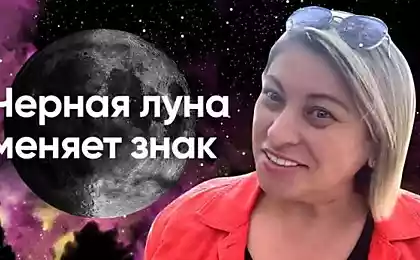1498
Secrets of the alphabet
That is encrypted in the "Epistle to the Slavs"? How much cost the State Russian letter "b"? Who actually suggested using the letter "e"? Reveals the secrets of the Russian alphabet.
1. The Epistle to the Slavs
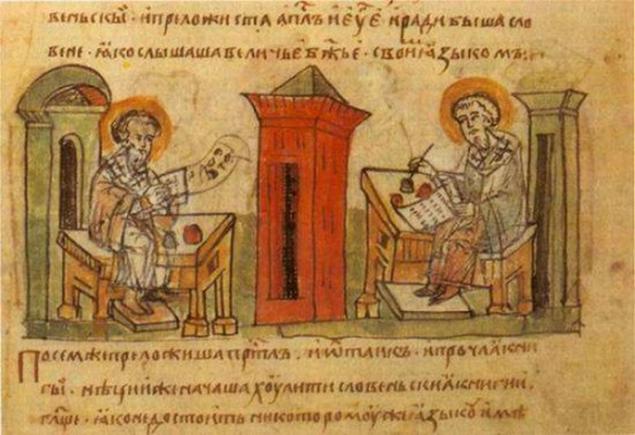
Customary set of letters of the Russian alphabet is actually none other than the "message to the Slavs." Each of the letters of the Cyrillic alphabet has a name, and if you read these names in alphabetical order, we obtain: "Az Buki Veda. Glagol the natural goodness. Live Zelo, the earth, and his ilk kako people, think nash on chambers. Rtsy word firmly - uk frt her. Tzu, worms, shta ra yus Yati. " One of the translations of the text is: "I know the letters: the letter is a treasure. Work harder, earthlings, as befits intelligent people - comprehend the universe! Wear the word with conviction: knowledge - the gift of God! Dare to delve to comprehend things light! "
2. LETTER unprintable
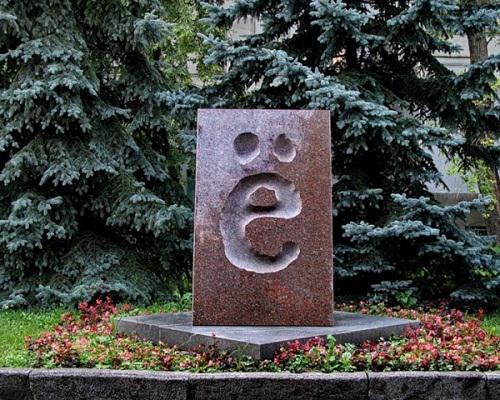
It is believed that the letter "e" in the Russian language came from French efforts exclusively Karamzin. As if in 1797 he remade in one of the poems of the word "sliozy" and pointed out in a footnote: "The letter with two dots replace" io ". In fact, the letter was offered for use by Princess Vorontsov, Dashkovoj (highly educated lady, president of the Academy of Sciences) in 1783. One of the first meetings she asked the academics, why should the word "iolka" the first sound is represented by two letters . None of the great minds, among whom were notable writers Gabriel Derzhavin Denis Fonvizin, decided not to specify the princess that sounds the same two "th" and "about." Therefore Dashkova suggested to use a new letter "to express words and reprimands from this agreement begins as matiory, iolka, iozh, iol." The peak of popularity of the letter "e" came in the Stalin years: a decade of her to provide special honor in textbooks, newspapers and reprints of classics. Today "e" often see a monument to the letter (in Russia there are several), than in the form of the letters in a book or newspaper.
3. STORM schoolboy
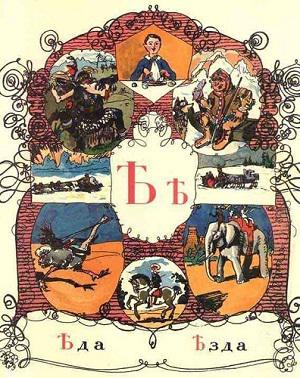
The letter "yat" was a kind of label that distinguished among the Russian word "aboriginal", Slavic. The object of heated debate for "Westerners" and "Slavophiles" in the issue of reform of Russian orthography. Real torture for high school students. However resourceful young minds to help yourself even composed a poem composed only of words with "yat": P? ly, bl? Cool, b? Cool b? Sh K? zhal hungry unto l? Sh. B? lkoy on l? cy on b? gal, P? dkoy Sh xp? nom PSAR? And for dal gorkiy tot about? db about Dal? mh over? lat b? db. First for the abolition of "yatya" once delivered a writer and translator Dmitry Language: "Letter? ... Seems like ancient stone, not in place of lying, of which all stumble and not attribute it to the side then only that he was once an ancient and needed for the building. " But in the Soviet time, Alexander Solzhenitsyn, known for its conservatism, argued for a return to the Russian grammar "yatya" together with the "puter».
4. The most expensive LETTER
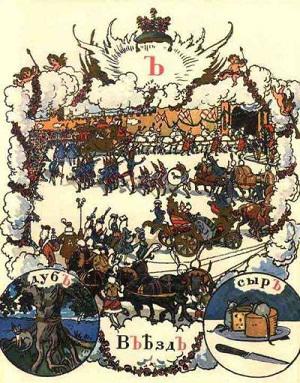
Er - "silent" letter that denotes no sound, and served as the "hard sign", which according to tradition was written at the end of words after hard consonants until the orthographic reform in 1918 However, the "er" takes more than 8% of the time and paper when Print and cost Russia more than 400,000 rubles annually. This letter-embezzler, not otherwise!
5. unto the world - WORLD!
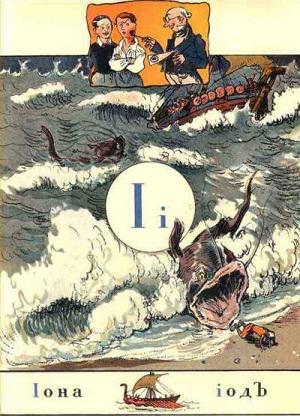
Another terrible agony for high school students were the letters "i" and the «i». However, when philologists reformers took discuss which of the two letters of the Russian alphabet delete case was decided by voting! So insignificant were arguments in favor of each of them. The fact that the Greek alphabet "and" and «i» represents two different sounds. And in the Russian language in the time of Peter I could not distinguish them by ear! The letter «i» in the root is found only in the word "mir" in the sense of "universe." If it means peace, no war - that word was written as "peace." Accordingly, written and cognate words "peaceful people" and "mirovoy poryadok».
6. as letters were the words
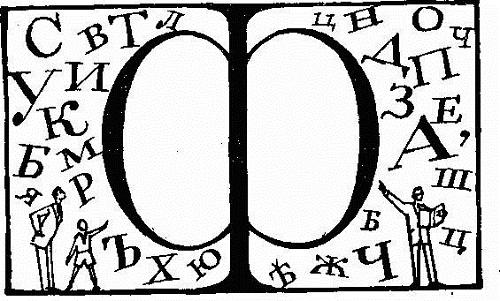
In the Cyrillic letter "f" wore intricate name "Firth." There was a phrase "stand Firth" akimbo, and then a new noun "Firth," and even the diminutive "foppish».
Generally, in the Slavic alphabet had two letters to denote the sound "f" - "Firth" and "fit", but it was quite a confusion! The word "Philip" wrote then through "f" and "Theodore", "arithmetic" through "Fitou". Go figure! (And remember to understand: in the Greek alphabet letter "p" stands for the sound "nx" and "fit" or "theta" - "mx»).
Noun "Firth" eventually became disapproving, polubrannym. In Chekhov: "There goes one to us Firth violin, scraping," Pushkin "at the wall foppish young stands magazine pictures».
7. E!
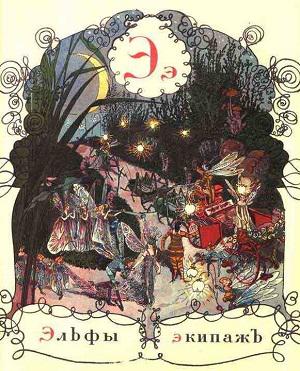
The letter "e" was legalized in the Russian alphabet only in the XVIII century, when the Russian language began to penetrate the borrowed words with the sound [e] at the beginning of words, and their writing and reading became a cause inconvenience: how to read - or Euripides Euripides, Euclid or Euclid? Met an unfriendly letter, and even Mikhail Lomonosov wrote that "if foreign reprimands invent new characters, it will be our alphabet with the Chinese." But in the early XX century "Encyclopedic Dictionary F.Pavlenkova" for the average intelligent reader recommends: write pince-nez, kenguru, ketgut, keks. Generally in the Russian language remains the feeling that "e" - the letter stranger. Recall, How to pronounce the word "Cram" Irina Muravyova heroine in the movie "Moscow Does Not Believe in Tears" to emphasize the status of cosmetics: Import deficient.
1. The Epistle to the Slavs

Customary set of letters of the Russian alphabet is actually none other than the "message to the Slavs." Each of the letters of the Cyrillic alphabet has a name, and if you read these names in alphabetical order, we obtain: "Az Buki Veda. Glagol the natural goodness. Live Zelo, the earth, and his ilk kako people, think nash on chambers. Rtsy word firmly - uk frt her. Tzu, worms, shta ra yus Yati. " One of the translations of the text is: "I know the letters: the letter is a treasure. Work harder, earthlings, as befits intelligent people - comprehend the universe! Wear the word with conviction: knowledge - the gift of God! Dare to delve to comprehend things light! "
2. LETTER unprintable

It is believed that the letter "e" in the Russian language came from French efforts exclusively Karamzin. As if in 1797 he remade in one of the poems of the word "sliozy" and pointed out in a footnote: "The letter with two dots replace" io ". In fact, the letter was offered for use by Princess Vorontsov, Dashkovoj (highly educated lady, president of the Academy of Sciences) in 1783. One of the first meetings she asked the academics, why should the word "iolka" the first sound is represented by two letters . None of the great minds, among whom were notable writers Gabriel Derzhavin Denis Fonvizin, decided not to specify the princess that sounds the same two "th" and "about." Therefore Dashkova suggested to use a new letter "to express words and reprimands from this agreement begins as matiory, iolka, iozh, iol." The peak of popularity of the letter "e" came in the Stalin years: a decade of her to provide special honor in textbooks, newspapers and reprints of classics. Today "e" often see a monument to the letter (in Russia there are several), than in the form of the letters in a book or newspaper.
3. STORM schoolboy

The letter "yat" was a kind of label that distinguished among the Russian word "aboriginal", Slavic. The object of heated debate for "Westerners" and "Slavophiles" in the issue of reform of Russian orthography. Real torture for high school students. However resourceful young minds to help yourself even composed a poem composed only of words with "yat": P? ly, bl? Cool, b? Cool b? Sh K? zhal hungry unto l? Sh. B? lkoy on l? cy on b? gal, P? dkoy Sh xp? nom PSAR? And for dal gorkiy tot about? db about Dal? mh over? lat b? db. First for the abolition of "yatya" once delivered a writer and translator Dmitry Language: "Letter? ... Seems like ancient stone, not in place of lying, of which all stumble and not attribute it to the side then only that he was once an ancient and needed for the building. " But in the Soviet time, Alexander Solzhenitsyn, known for its conservatism, argued for a return to the Russian grammar "yatya" together with the "puter».
4. The most expensive LETTER

Er - "silent" letter that denotes no sound, and served as the "hard sign", which according to tradition was written at the end of words after hard consonants until the orthographic reform in 1918 However, the "er" takes more than 8% of the time and paper when Print and cost Russia more than 400,000 rubles annually. This letter-embezzler, not otherwise!
5. unto the world - WORLD!

Another terrible agony for high school students were the letters "i" and the «i». However, when philologists reformers took discuss which of the two letters of the Russian alphabet delete case was decided by voting! So insignificant were arguments in favor of each of them. The fact that the Greek alphabet "and" and «i» represents two different sounds. And in the Russian language in the time of Peter I could not distinguish them by ear! The letter «i» in the root is found only in the word "mir" in the sense of "universe." If it means peace, no war - that word was written as "peace." Accordingly, written and cognate words "peaceful people" and "mirovoy poryadok».
6. as letters were the words

In the Cyrillic letter "f" wore intricate name "Firth." There was a phrase "stand Firth" akimbo, and then a new noun "Firth," and even the diminutive "foppish».
Generally, in the Slavic alphabet had two letters to denote the sound "f" - "Firth" and "fit", but it was quite a confusion! The word "Philip" wrote then through "f" and "Theodore", "arithmetic" through "Fitou". Go figure! (And remember to understand: in the Greek alphabet letter "p" stands for the sound "nx" and "fit" or "theta" - "mx»).
Noun "Firth" eventually became disapproving, polubrannym. In Chekhov: "There goes one to us Firth violin, scraping," Pushkin "at the wall foppish young stands magazine pictures».
7. E!

The letter "e" was legalized in the Russian alphabet only in the XVIII century, when the Russian language began to penetrate the borrowed words with the sound [e] at the beginning of words, and their writing and reading became a cause inconvenience: how to read - or Euripides Euripides, Euclid or Euclid? Met an unfriendly letter, and even Mikhail Lomonosov wrote that "if foreign reprimands invent new characters, it will be our alphabet with the Chinese." But in the early XX century "Encyclopedic Dictionary F.Pavlenkova" for the average intelligent reader recommends: write pince-nez, kenguru, ketgut, keks. Generally in the Russian language remains the feeling that "e" - the letter stranger. Recall, How to pronounce the word "Cram" Irina Muravyova heroine in the movie "Moscow Does Not Believe in Tears" to emphasize the status of cosmetics: Import deficient.
